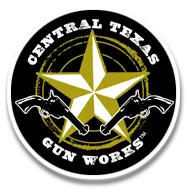Yes. You must take a 4 to 6 hour class taught by a DPS certified instructor. The notification of completion form (LTC 100) you receive from the instructor must be sent to DPS with your other supporting documents.
Frequently Asked Questions about CHL / LTC in Texas
You must contact the DPS Concealed Handgun Section to receive a change of address form, or you may send a letter including your full name, CHL number, old address and new address (or status) and a cashier's check or money order for $25.
You may call 1-800-224-5744, write Texas Dept. of Public Safety Concealed Handgun Licensing Bureau, P.O. Box 4087, Austin, Texas, 78773 or online at
http://www.texasonline.state.tx.us/NASApp/txdps/chl/common/jsp/selectTask.jsp or
ftp://ftp.txdps.state.tx.us/forms/cr-70.pdf
Handguns and other weapons cannot be carried at schools or on school buses, at polling places, in courts and court offices, at racetracks, at secured airport areas or within 1,000 feet of the premises of an execution on the day of execution.
The law also specifically prohibits handguns from businesses where alcohol is sold if more than half of their revenue is from the sale of alcohol for on-premises consumption, and from locations where high school, college or professional sporting events are taking place.
You may not carry handguns in hospitals or nursing homes, amusement parks, places of worship or at government meetings if signs are posted prohibiting them.
Businesses also may post signs prohibiting handguns on their premises based on criminal trespass laws. See Texas Penal Code 46.035. (Judges, prosecuting attorneys, peace officers and parole officers should consult Texas Penal Code 46.15 regarding exemptions from the "no-carry" rules of the Penal Code.)
The handgun law sets out the eligibility criteria that must be met. Your application packet will list them in detail.
For example, you must be qualified to purchase a handgun under the state and federal laws.
A number of factors may make you ineligible to obtain a license, such as: felony convictions and most misdemeanor convictions that are less than five years old, (including charges that resulted in probation or deferred adjudication), pending criminal charges, chemical or alcohol dependency, certain psychiatric diagnoses, protective or restraining orders, or defaults on taxes, governmental fees, student loans or child support. See Texas Gov't. Code § 411.172.
The application packet also will include information about materials you need to return with your application packet. These include two recent color passport photos, two sets of fingerprints taken by a law enforcement agency employee or a private entity designated by a law enforcement agency as an entity qualified to take fingerprints of an applicant for a license, a copy of your Texas driver license or identification card, and a notification of completion form (TR 100) from a DPS authorized training course.
After receiving completed application packets, DPS will conduct background checks of juvenile records for the previous 10 years, and of all adult records.
No. Let's take DWI as an example. DWI (first offense) is a Class B misdemeanor, and a person is not eligible for a license for five years after a conviction for a Class A or Class B misdemeanor or for the offense of disorderly conduct.
A 'conviction" includes cases that were dismissed after you completed probation or deferred adjudication. If you have been convicted of two or more alcohol or drug-related misdemeanor offenses within the last 10 years, you may not be eligible.
Yes. The concealed handgun law states that deferred adjudication will be treated as a conviction, except for orders of deferred adjudication over 10 years old for certain felony offense not involving violence against a person. See Texas Gov't. Code.
Yes. If you have a payment plan with a government agency for back taxes or child support and the agency sends DPS a clearance letter, you may apply. Include a copy of the agreement and letter with your application materials.
The concealed handgun law was designed to encourage those who made no effort whatsoever to pay what they owe.
Unless you have been legally adjudicated as a mental defective, eligibility for a concealed handgun license depends on your current diagnosis. Past psychiatric treatment will not necessarily make you ineligible.
When you submit your application you may wish to include a letter or statement from your treating physician regarding the current status of your condition.
Yes. Failure to disclose all of your arrests and convictions is an independent ground for your denial of your application.
Yes. In order to be eligible for a Texas concealed handgun license, you must be fully eligible under both Texas and federal law to purchase a handgun (except for military applicants who are at least 18 years of age but under the age of 21).
CHL Menu
- Austin LTC Classes
- LTC Class
- Online LTC Class
- Military/Vets/1st Response LTC Class
- Range Only
- Refresher Class
- Renewal Information
- Legislative Update Class
- Groupon
- Gift Certificates
- Beginner Firearm Safety Class
- Groupon
- Private Class
- Books
- T-Shirts
- Private Security Classes
- Level 2 Class
- Level 3 Class
- Level 3 Renewal Class
- Open Carry FAQs
- LTC / CHL Class Overview
- Texas LTC Eligibility
- LTC Class Curriculum
- Texas LTC FAQs
- Steps to Apply
- Fingerprints & Photo
- Useful Links

